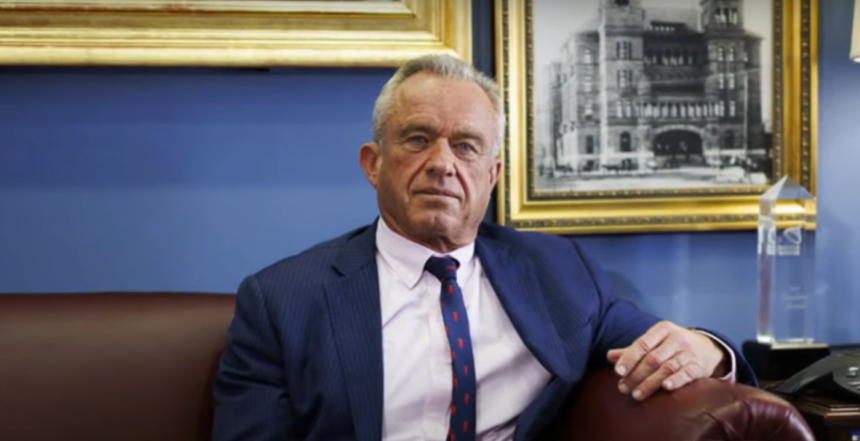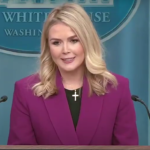Robert F. Kennedy Jr.’s nomination for Secretary of Health and Human Services (HHS) under President Donald Trump has sparked intense debate and division across political and public health circles. A longtime environmental lawyer and outspoken vaccine skeptic, Kennedy’s appointment is seen by some as an effort to reform government health policies, while others believe it could undermine public trust in vaccination and federal health initiatives.
Kennedy’s nomination has been met with strong opposition from within his own family. His cousin, Caroline Kennedy, daughter of former President John F. Kennedy, has made it clear that she vehemently opposes his appointment. In a letter sent to U.S. Senators, she described Kennedy as a “predator” with “dangerous” views on healthcare, accusing him of spreading false information about vaccines and undermining scientific consensus. She emphasized that Kennedy lacks medical, financial, or governmental experience, questioning his ability to effectively manage one of the nation’s most important public health institutions.
Beyond family opposition, major media outlets, including those within the Murdoch media empire—such as The Wall Street Journal and The New York Post—have published editorials denouncing his nomination. These publications have labeled him a conspiracy theorist, citing his long history of promoting vaccine misinformation. His leadership of the Children’s Health Defense, a well-known anti-vaccine organization, has drawn particular scrutiny.
Kennedy has been a persistent critic of vaccines, repeatedly linking them to autism and other health concerns, despite overwhelming scientific evidence proving vaccines are safe and effective. His organization, Children’s Health Defense, has been accused of spreading misinformation about vaccine safety, COVID-19 policies, and other public health measures. Public health experts fear that his leadership at HHS could further erode public trust in vaccines and government health recommendations.
Despite these criticisms, Kennedy has attracted support from some conservatives who see him as a reformer willing to challenge the pharmaceutical industry and government overreach in healthcare policies. Senator Rand Paul, a vocal critic of government health mandates, has publicly supported Kennedy, arguing that he could bring transparency and accountability to the HHS. Paul’s endorsement underscores a broader sentiment among some conservatives that Kennedy’s leadership could help address concerns about “big government” influence over healthcare policies.
Donald Trump’s decision to nominate Kennedy is a calculated political move, designed to appeal to anti-establishment voters and those skeptical of mainstream science and government health agencies. By positioning Kennedy as a disruptor, Trump is aligning himself with vaccine-skeptic conservatives while also attempting to broaden his base by bringing in disillusioned Democrats and independent voters who share concerns about pharmaceutical companies and federal health mandates.
However, this nomination poses significant risks for Trump. While Kennedy’s appointment energizes certain factions of the Republican base, it also alienates mainstream conservatives and public health officials who have spent years combating vaccine hesitancy and misinformation. If Kennedy’s nomination proceeds to a full Senate vote, it is likely to face resistance from both Democrats and moderate Republicans.
As Kennedy prepares for grueling Senate confirmation hearings, he will likely face tough questions from lawmakers about his stance on vaccines, public health policies, and his qualifications to lead HHS. Senators are expected to press him on his past statements, including his opposition to vaccine mandates, his views on COVID-19 restrictions, and his ties to anti-vaccine organizations. The hearings will serve as a critical test of his credibility and determine whether his nomination will be approved.
Public health experts and advocacy groups have already begun mobilizing against his appointment, warning that his leadership could jeopardize national health programs and undermine vaccination efforts. Many fear that if confirmed, Kennedy’s policies could weaken the HHS’s ability to respond to public health crises, especially in future pandemics or outbreaks of vaccine-preventable diseases.
If Kennedy is confirmed, his tenure as HHS Secretary could mark a dramatic shift in federal health policy, with potential consequences for vaccination programs, pharmaceutical regulations, and public trust in science. The Centers for Disease Control and Prevention (CDC), National Institutes of Health (NIH), and the Food and Drug Administration (FDA) could all face significant policy changes under his leadership.
On the other hand, if his nomination is blocked or withdrawn, it could be seen as a major defeat for Trump, exposing divisions within the Republican Party over public health policy. It would also raise questions about Trump’s judgment in appointing someone with no formal medical experience to such a critical role.
The nomination of Robert F. Kennedy Jr. as HHS Secretary is one of the most controversial appointments in recent history. It represents a collision of politics, science, and public health, with high stakes for the future of America’s healthcare system. While Kennedy’s supporters view him as a reformer challenging entrenched interests, his critics warn that his leadership could undermine decades of scientific progress in vaccine safety and disease prevention.
As the Senate hearings unfold, the nation will be watching closely to see whether Kennedy’s controversial views will be enough to derail his confirmation—or if Trump’s gamble on an anti-establishment nominee will pay off politically. Regardless of the outcome, this nomination will have long-lasting implications for both Trump’s presidency and the future of U.S. public health policy.






